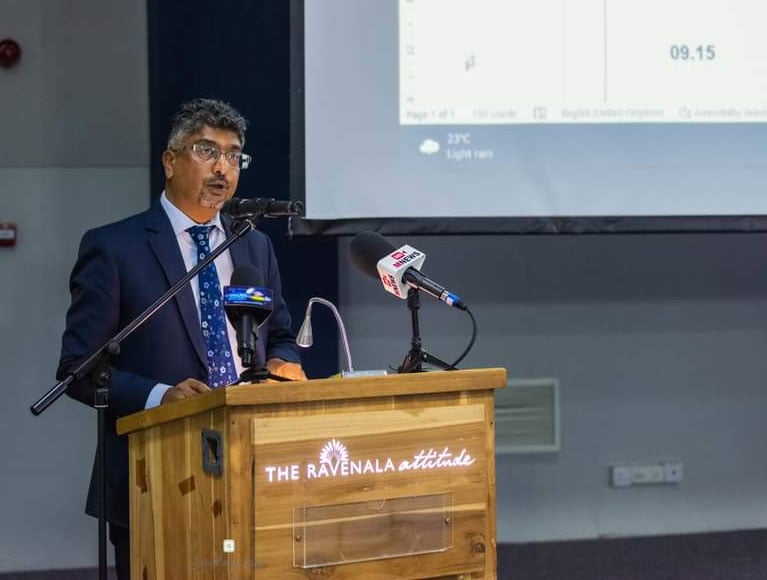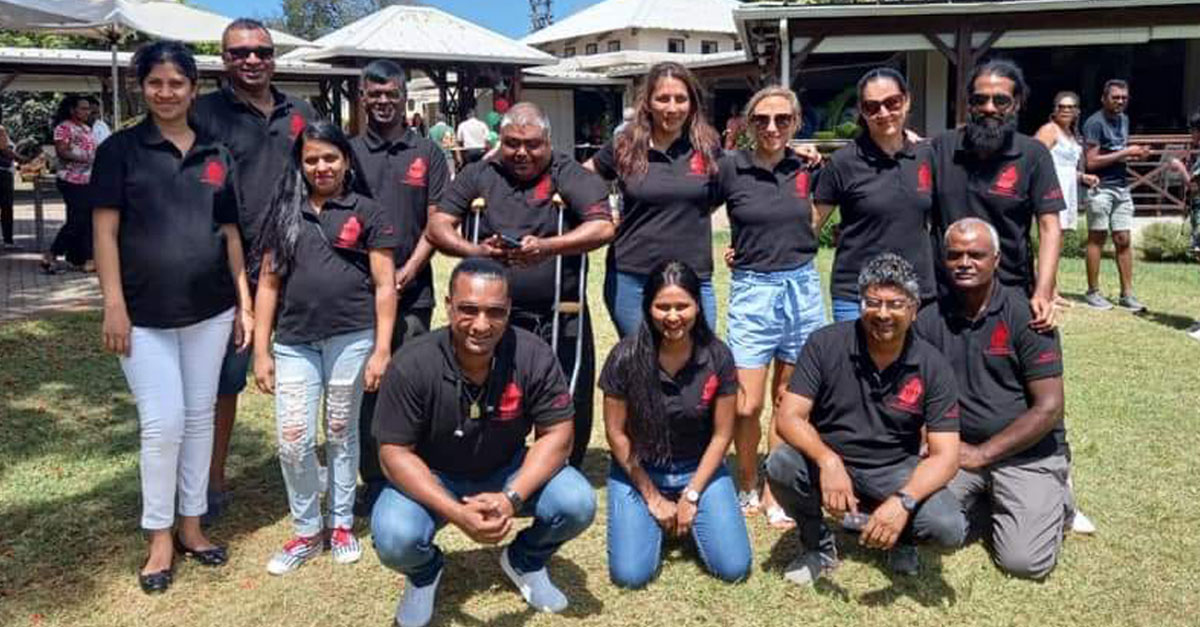NMO name | Haemophilia Association of Mauritius (HAM) |
Location | Vacoas, Mauritius |
Founding date | 2008 |
Active members | 225 |
PWBDs served | 103 |
Website* |
The following answers have been edited for clarity.
What are your vision and mission?
Our vision is that by working together, we will stop the bleeding. Our mission is to strive towards a state where people with bleeding disorders are properly diagnosed and receive treatment and quality care so they can lead a normal life.
What are the challenges you face?
One of our biggest challenges is that Mauritius doesn’t have a hematologist. We have tried to overcome this situation through education, awareness, and advocacy but it’s not easy. We try our best by following WFH Treatment Guidelines, and by working closely with local governments.
Are you working with other NMOs in your region?
Previously, we took part in the WFH Hemophilia Organization Twinning (HOT) with the South African Haemophilia Foundation, where the latter were the established partner. Last year, we were the established partner in a twinning with the Haemophilia Association of Lesotho (HAL). We are proud to be in a position where we can now share our learnings with other organizations.
What was your main achievement in 2022?
Our main achievements in 2022 were bringing home therapy to our community, implementing care as per WFH Treatment Guidelines, offering physiotherapy training, and beginning our Twinning with HAL. We were also able to advocate with the Ministry of Health, network at the local and international levels, and fundraise. We faced challenges along the way, including government officials who changed postings, which made it hard to keep our momentum going. To face this challenge, we created a technical team to lobby with the government.
What are the services you are offering to the bleeding disorder community?
We’re helping to bring awareness and education to the general population. We also provide home therapy and psychological counselling to the people in our community to ensure they are supported and have access to adequate care and treatment.
What has improved in your community over the years thanks to your organization’s work?
PWBDs are now able to lead a more normal life. Absenteeism at school and at work have been reduced, and children can take part in sports activities and play with their friends for the first time.

As part of your advocacy work, did you try to work with governments to change policies affecting bleeding disorders?
Yes, we did. Thanks to our advocacy efforts, today, clotting factor concentrate (CFC) is on the essential medications list in Mauritius, and all patients with severe hemophilia are on prophylaxis. This was achieved through patience and perseverance, and most importantly, consistent effort over time.
How do you envision the future of the bleeding disorder community in your country?
PWBDs leading a normal life, managing their bleeds efficiently from home, growing up with less joint issues, continuing to benefit from research on bleeding disorders, and participating in sports activities.
What’s it been like collaborating with the WFH?
HAM has come a long way thanks to our collaboration with the WFH: we have really benefitted from the support that the WFH provides. For example, networking opportunities, Twinning, research support, advice, product donations and IHTC fellowships have all strengthened our organization. Today, healthcare practitioners (HCPs) are more and more aware of bleeding disorders, and, as a result, they can prescribe required treatments. That means that PWBDs have access to adequate care and treatment, and they are able to lead a more normal life with reduced joint problems.
Are there any upcoming events/initiatives that you would like to promote?
Of course, we will be celebrating World Hemophilia Day! We would also like to share that we are excited to begin an endeavour of establishing a Medical and Scientific Advisory Council (MASAC) and working with the Mauritius Institute of Health to offer specialized hematology nurse training for hemophilia, thalassemia, and sickle cell disease.
Do you have a special message for the global bleeding disorders community?
We encourage other NMOs to take advantage of WFH resources and participate in activities organized by the WFH so that they can increase the level of care they can provide to their community.
To read about the way the WFH and NMOs collaborate to make a difference in local bleeding disorders communities, please read “National member organizations: the heartbeat of the WFH” here.
To read about the first article in this series on our Mexican NMO, click here. To read about the NMO in Costa Rica, please click here.
* Disclaimer: This is an external website, and its content has not been developed nor endorsed by the WFH.












